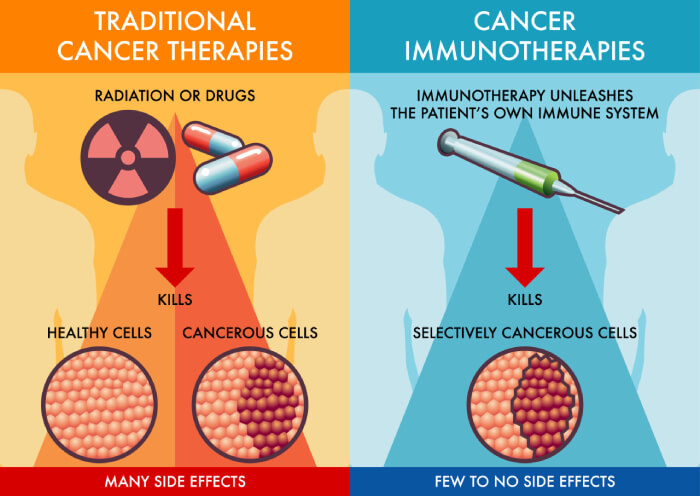Immunotherapy
Best Immunotherapy Doctor in Delhi
Everything You Need To Know About immunotherapy
Immunotherapy is a type of cancer treatment that helps your immune system fight cancer. The immune system helps your body fight infections and other diseases. It is made up of white blood cells and organs and tissues of the lymph system. Immunotherapy is a type of biological therapy. Biological therapy is a type of treatment that uses substances made from living organisms to treat cancer.
How does the immune system fight cancer?
What are the types of immunotherapy?
Several types of immunotherapy are used to treat cancer. These include:
- Immune checkpoint inhibitors, which are drugs that block immune checkpoints. These checkpoints are a normal part of the immune system and keep immune responses from being too strong. By blocking them, these drugs allow immune cells to respond more strongly to cancer.
- T-cell transfer therapy, which is a treatment that boosts the natural ability of your T cells to fight cancer. In this treatment, immune cells are taken from your tumor. Those that are most active against your cancer are selected or changed in the lab to better attack your cancer cells, grown in large batches, and put back into your body through a needle in a vein.
- Monoclonal antibodies, which are immune system proteins created in the lab that are designed to bind to specific targets on cancer cells. Some monoclonal antibodies mark cancer cells so that they will be better seen and destroyed by the immune system. Such monoclonal antibodies are a type of immunotherapy.
- Treatment vaccines, which work against cancer by boosting your immune system’s response to cancer cells. Treatment vaccines are different from the ones that help prevent disease.
- Immune system modulators, which enhance the body’s immune response against cancer. Some of these agents affect specific parts of the immune system, whereas others affect the immune system in a more general way.

Make An Appointment
Other type of Cancer
What is the Process of Treating Cancer with Immunotherapy?
Immunotherapies may be given:
- Intravenously (directly into a vein)
- Topically (creams or ointments)
- Via injections, either subcutaneously (under the skin) or Intramuscularly (into a muscle)
- Directly into a particular body cavity to treat a specific cancer tumour site
Immunotherapy can operate as a standalone means of cancer treatment, or it can be combined with other cancer remedies.
What is the difference between immunotherapy and chemotherapy?
Chemotherapy is a direct form of attack on rapidly-dividing cancer cells, but this can affect other rapidly dividing cells including normal cells. When patients respond, the treatment’s effects happen immediately. These direct effects of chemotherapy, however, last only as long as treatment continues.
Immunotherapy treats the patient’s immune system, activating a stronger immune response or teaching the immune system how to recognize and destroy cancer cells. Immunotherapy may take more time to have an effect, but those effects can persist long after treatment ceases.
How effective is immunotherapy?
Success rates for any cancer treatment, including immunotherapy, depend on individual factors, including the cancer type and stage. In general, immunotherapy is effective against many cancers. While some cancers are more immunogenic than others, in general, immunotherapy is effective across a wide variety of cancers. Immunotherapy can produce durable responses unlike chemotherapy or radiation, however, these occur only in around 25% patients.
